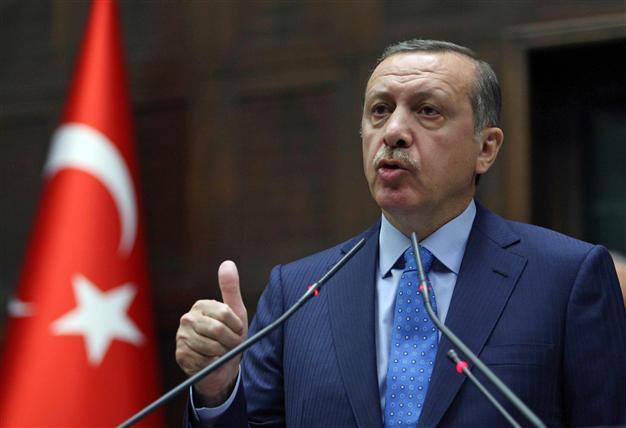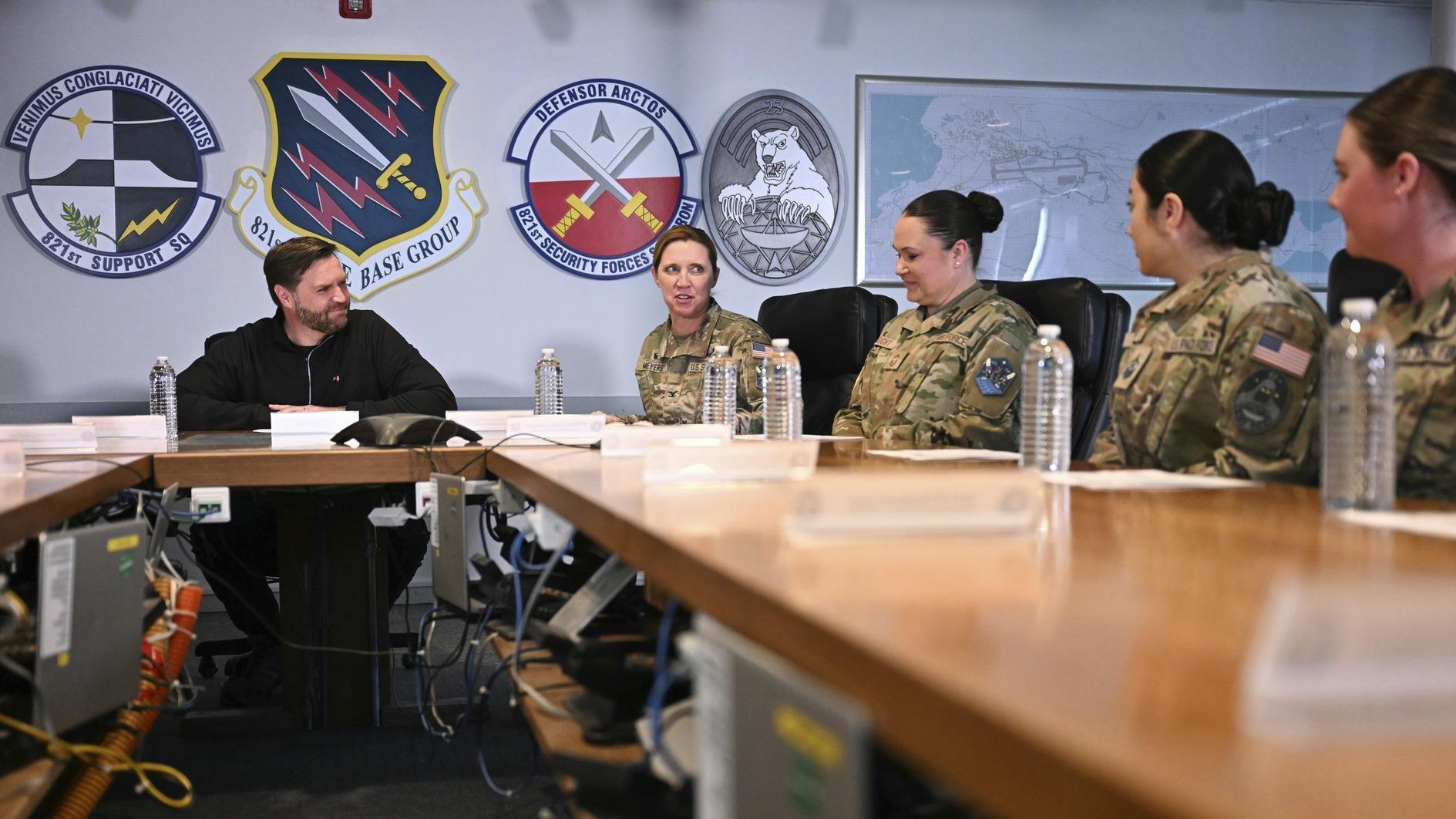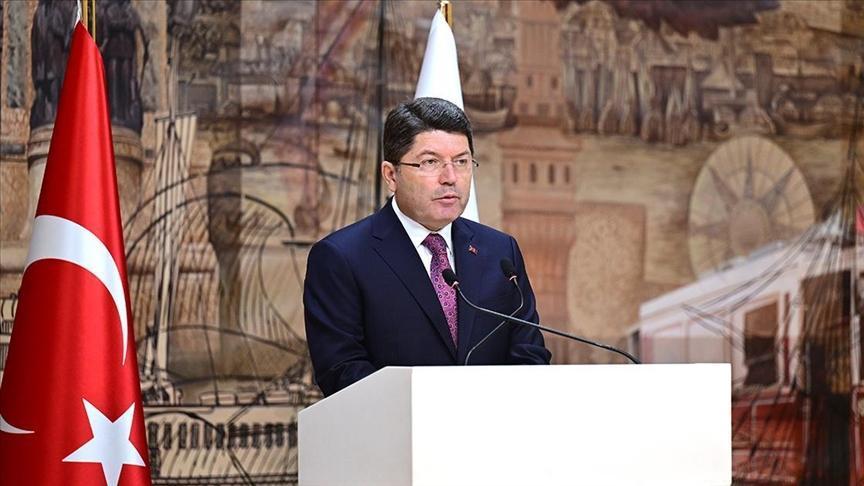Militants should lay down their arms before withdrawing: PM Erdoğan
ISTANBUL

Turkish prime minister gave a live interview to private broadcaster CNN Türk on March 29.
Militants of the outlawed Kurdistan Workers’ Party (PKK) who withdraw from Turkey will have to lay down their arms before crossing the border, in order to prevent further confrontation, Prime Minister Recep Tayyip Erdoğan has said. “No one will respond to people without arms,” Erdoğan said during a live interview with private broadcaster CNN Türk on March 29.Security forces have indicated that around 1,500 to 2,000 PKK militants remain in Turkish territory, he added.
The jailed leader of the PKK had declared a cease-fire and called for the withdrawal of the militants from Turkey in a message conveyed during the Nevruz celebrations in Diyarbakır on March 21. The leader of the PKK in northern Iraq, Murat Karayılan, also announced a cease-fire following Öcalan’s call.
Erdoğan emphasized that the question of what those militants will do after their withdrawal is more the problem of the country who receives them than Turkey's. “Perhaps they will go to Iraq, perhaps to Syria, or perhaps to Europe, particularly the Scandinavian countries. I cannot know that. What’s important to me is peace in my country. The thing I know is that when they go, the atmosphere of my country will change when we realize the economic boom in the east [after the withdrawal],” he said.
The prime minister reiterated that the government’s proposal to the Kurds was a call for them to pursue their goals by political means. “[The Peace and Democracy Party] is perceived as the political affiliation of the terrorist organization. To overcome that [perception], arms have to be laid down and the struggle has to be made in politics,” Erdoğan said.
He also strongly denied claims that Öcalan would be freed or moved to home confinement following the conclusion of the process.
Erdoğan touched on the issue of the “wise-people commissions” that are set to be formed in order to increase public support for the process.
Seven commissions will be tasked for each of the country’s seven regions, he said, adding that each commission would be comprised of seven people. The commissions will be provided with a framework and the heads of all the commissions will be directly accountable to the prime minister.
“They will visit NGOs, organize conferences, and will work to develop public perception. We want quick action. Our goal is to have them finish their work within a month,” Erdoğan said.
He added that the monitoring of the withdrawal by the commissions, as had previously been suggested, was “out of the question.”
Developed countries ‘not afraid’ of federalism
After surprisingly revealing his support for the possible introduction of a federal system this week, Erdoğan insisted that “strong countries” had decentralized systems of government. “If you look at the developed countries, they are not afraid of states. On the contrary, this is a sign of strength, it speeds up development. If you look to the strong Ottoman Empire, there were a Lazistan state and a Kurdistan state,” he argued, repeating that he was willing to discuss an eventual transition to a more federal system.
Erdoğan also reserved strong criticism for the work of the Constitution Conciliation Commission, stressing that it would be impossible to meet the April 1 deadline that had been set. He said the ruling Justice and Development Party (AKP) could try negotiating with the main opposition Republican People’s Party (CHP) to bring an end to the deadlocked discussions.
The last option would be to bring the draft to the referendum together with the minor opposition Peace and Democracy Party (BDP), Erdoğan said, accusing all opposition parties of not being prepared enough.
Green light for citizenship to minorities returning to Turkey
The prime minister also gave his green light for the returning of Turkish citizenship to minorities who have migrated away, if they return to the country. “We have called for them to come back, so why should we not give them citizenship [if they return],” he said.
Responding to related questions on the fate of the Halki Seminary, Erdoğan said the reopening of the Greek Orthodox theological school would not be difficult. However, he connected the issue to the Greek government allowing the Muslim minority in Western Thrace to choose its own mufti, which is currently not permitted despite the stipulation in the 1923 Lausanne Treaty.
“I told [German Chancellor] Angela Merkel during my recent meeting with her. She said that she did not know about this [problem]. So I asked them to warn [the Greek government]. I told her that if she solved this, I would be ready to solve the Halki Seminary issue,” he said.
Energy agreement with Iraqi Kurds a 'win-win'
Erdoğan also confirmed that the government is currently discussing the terms of an energy agreement with Iraqi Kurds.
Referring to a Baghdad-controlled oil pipeline to Turkey, he said the aim was to "make the existing pipeline more active." He suggested that it might be extended with multiple oil and gas pipelines.
The partnership threatens to worsen a long-running dispute between Baghdad and the autonomous Kurdistan Regional Government (KRG).
Erdogan dismissed the concerns and said the Kurdish regional government had a right under the Iraqi constitution to use part of its energy resources with whichever country it chooses.
“Why did northern Iraq feel the need to make such an agreement with us? ... Because they cannot agree with (Iraqi Prime Minister) Maliki,” he said.
“There is no article in the (Iraqi) constitution that can prevent (the Kurdish regional government) from making this trade contract with us,” describing the cooperation as "win-win" for both sides.
















